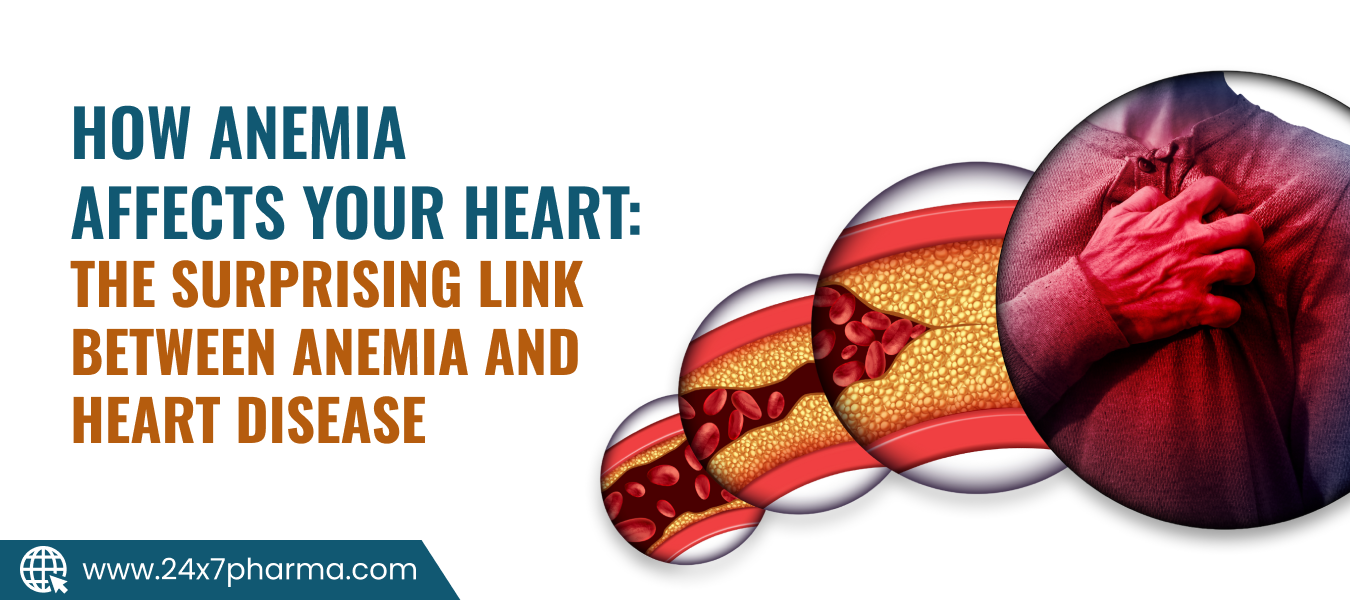Introduction
Feeling constantly tired? It might not just be stress — your heart could be working overtime because of anemia.
Anemia, a condition characterized by a deficiency in red blood cells or hemoglobin, impacts millions worldwide. On the other hand, heart disease remains the leading cause of death globally. While these two conditions might seem unrelated, the anemia and heart disease connection is more significant than many realize. Understanding how anemia affects the heart is crucial for early intervention and maintaining cardiovascular health.
How Anemia Affects the Heart
When you have anemia, your body struggles to deliver enough oxygen to vital organs, including your heart. This oxygen deficiency forces the heart to work harder to pump blood, leading to several complications:
- Reduced Oxygen Levels: Low hemoglobin levels mean less oxygen reaches the heart, causing it to strain. This oxygen deficiency and heart stress can lead to complications.
- Heart Compensation: To counteract low oxygen, the heart may beat faster (tachycardia) or become enlarged (cardiomegaly), leading to low hemoglobin heart problems.
- Chronic Risks: Prolonged anemia can weaken heart muscles, increasing the anemia heart failure risk and other cardiovascular health issues.
Read More : Anemia: Types, Symptoms, and Risk Factors
The Link Between Anemia and Heart Disease
Scientific studies consistently highlight the anemia heart disease risk. Anemia can exacerbate existing heart conditions or even contribute to new ones.
- Increased Risks: Anemia has been linked to higher chances of heart failure, arrhythmias, and ischemic heart disease, strengthening the anemia cardiovascular connection.
- At-Risk Populations: The elderly, patients with chronic illnesses, and those with iron deficiency are particularly vulnerable to anemia and heart failure.
Recognizing the Warning Signs
Identifying when anemia is affecting your heart is vital for timely treatment. Common symptoms include:
- Shortness of Breath: Even mild exertion can cause breathing difficulties due to anemia oxygen levels and heart strain.
- Chest Pain: Oxygen-deprived heart muscles may lead to discomfort or pain, a significant anemia warning sign.
- Irregular Heartbeat: Palpitations or arrhythmias can indicate heart strain, showing clear heart disease symptoms.
Prevention & Management Strategies
Managing anemia effectively can significantly reduce the risk of heart-related complications.
- Diet & Supplements: Incorporate iron-rich foods like spinach, red meat, and legumes. Iron and B12 supplements can also help, supporting both managing anemia and heart-healthy diet for anemia.
- Monitor Heart Health: Regular check-ups, including blood tests and ECGs, can detect low hemoglobin heart problems early.
- Consult a Doctor: If you experience symptoms like fatigue, chest pain, or irregular heartbeat, seek medical advice to understand the anemia and heart disease connection.
Conclusion
The anemia and heart disease connection is a critical health topic that shouldn’t be overlooked. Recognizing how anemia affects the heart can lead to early interventions and better outcomes. If you’re experiencing symptoms, consult your doctor today to safeguard your cardiovascular health.

